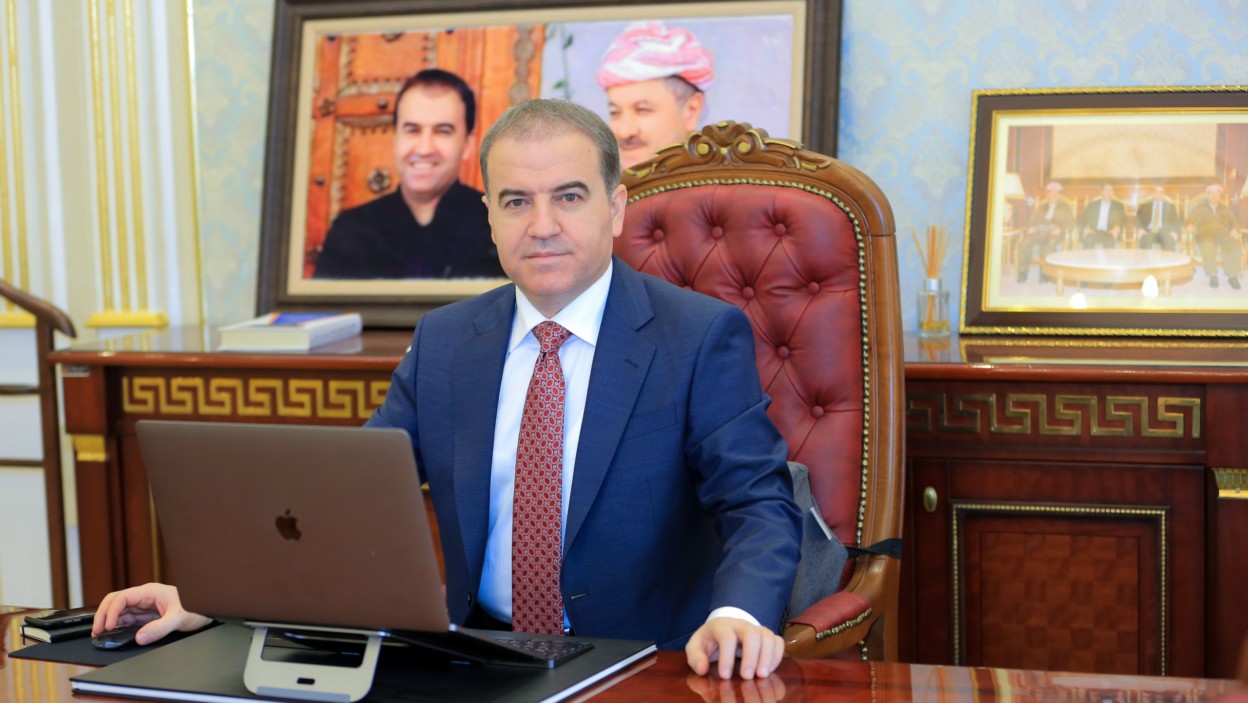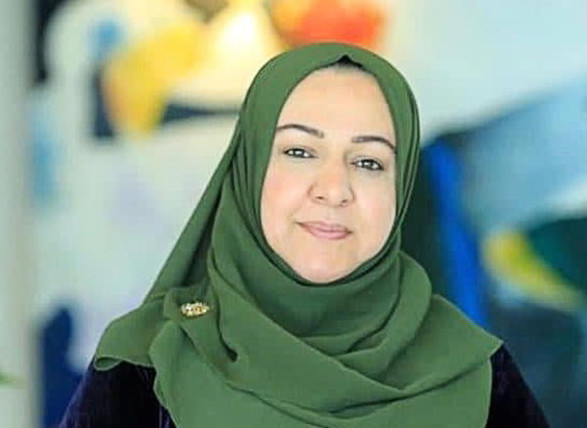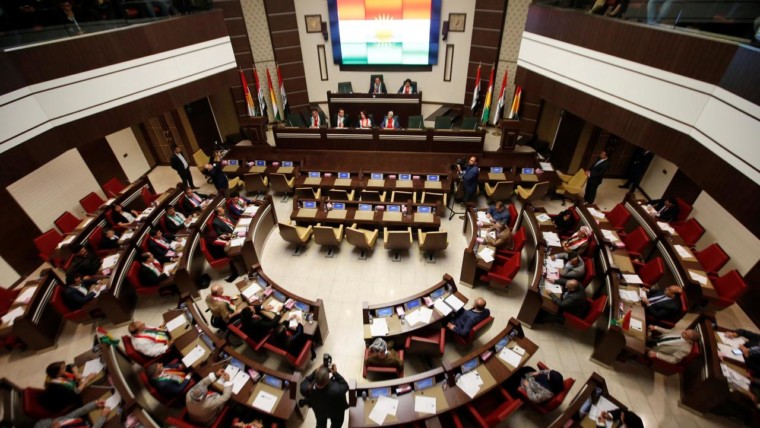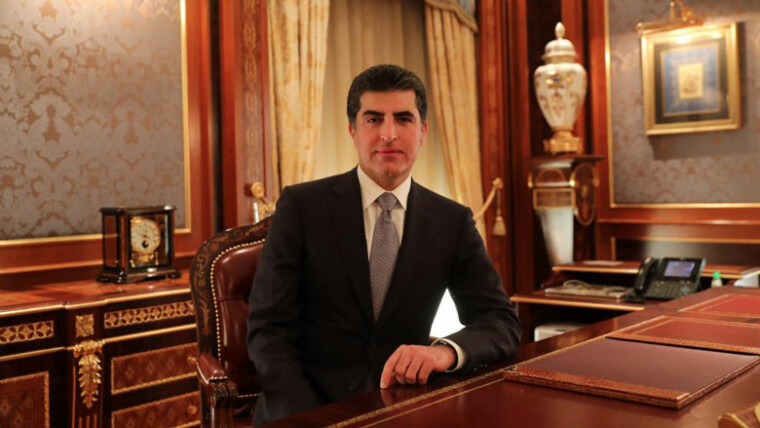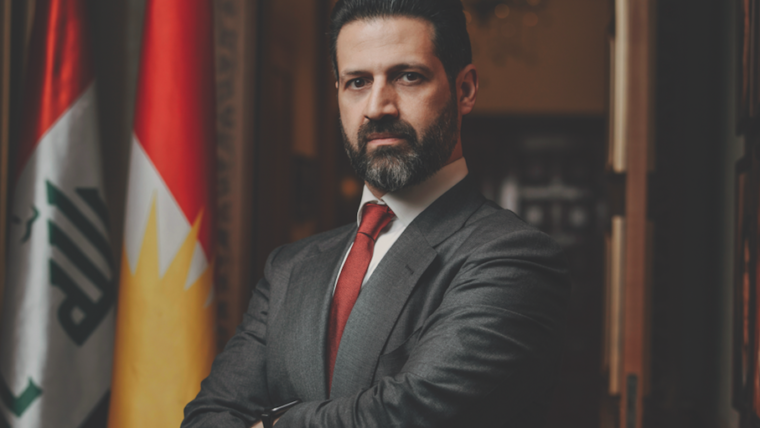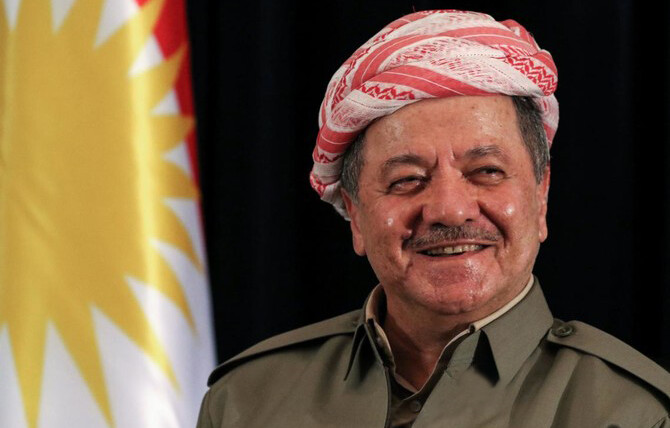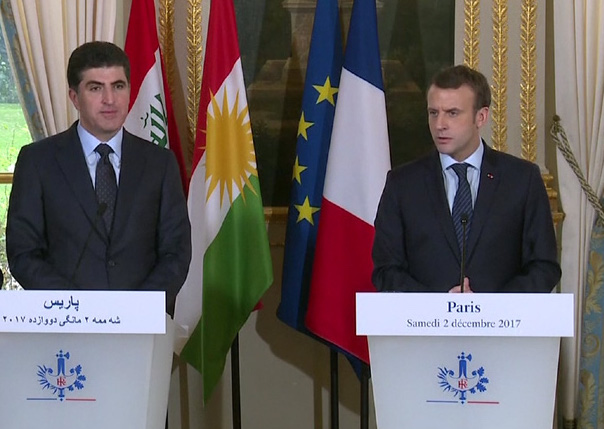Hemin Hawrami, Deputy Speaker of the Kurdistan Parliament, on good governance, gender equality, and the key bills that the Parliament will focus on in 2020.
How would you define the Kurdistan Parliament’s role in promoting democracy and good governance?
Firstly, with the change in the electoral system from closed party lists to semi-open lists, the public now votes for individual party candidates rather than for a particular party. This increases voter turnout and our citizens’ engagement with candidates. Candidates who want to become members of parliament (MPs) can announce their pledges and priorities to voters and campaign to win their support.
The Kurdistan Region of Iraq (KRI) stands out as a model for peaceful coexistence in the Middle East. The participation and representation of Kurdistan’s various ethnic and religious communities in elections is ensured by reserving them 11 parliamentary seats. Currently eight different Christian, Armenian and Turkmen parties have seats in Parliament. We are committed to ensuring that democracy and representation is not only for ethnic Kurds, but also for all component populations of Kurdistan.
While we do not have a constituency system, MPs spend a lot of time meeting citizens from their areas to familiarize themselves with local issues. Parliament has branch offices in five locations, at which the public can submit requests and complaints. This ensures that Parliament does not just work behind closed doors and fulfills its democratic duty to represent all geographical areas.
Currently eight different Christian, Armenian and Turkmen parties have seats in Parliament. We are committed to ensuring that democracy and representation is not only for ethnic Kurds, but also for all component populations of Kurdistan.
Hemin Hawrami, Deputy Speaker of the Kurdistan Parliament
Parliament promotes good governance by scrutinizing the performance of the sitting government. In recent months MPs have looked into many issues, including problems with household water meters, quality control of pharmaceuticals, administrative hurdles for investors, and corruption allegations, as well as allocating part of the budget to building sports centers. Parliament can summon ministers and other officials for questioning. If deemed necessary, they can refer cases to the Integrity Commission.
MPs meet representatives of the disabled community, prisoners, women’s shelters, orphanages, former political prisoners, and families of veterans, as well as the government departments responsible for them. As such, MPs hear the concerns of both sides and recommend how the government can improve social provision and other frontline services.
Recently, MPs voted to increase the number of Parliamentary committees from 15 to 19. This change will strengthen the promotion of good governance because committees will be able to focus on specific areas of responsibility, whereas previously some committees were spread too thinly over many areas.
What are the key legislative bills that the Kurdistan Parliament will focus on in 2020?
In 2020, the Kurdistan Parliament will focus on bills that support the government’s reform agenda. We expect the government to give Parliament 16 bills to work on in early 2020. The bills include streamlining government employees’ pay grades, salary scales and pensions, establishing a special quality control body for medicines, foodstuffs and other consumer products, creating a health insurance system, education reforms, and amending the investment law to facilitate economic diversification.
Another big priority is to draft the Kurdistan Constitution. While we have laws that govern our institutions and enshrine out people’s rights and responsibilities, we do not have a defining constitution. The Constitution will define our nation, goals, and values. It will describe, empower, and limit governing institutions, and will protect the rights of all Kurdistan’s religious and ethnic communities. We three members of Parliament’s Presidency have met with all of Kurdistan’s political party leaders to form the drafting committee that will write the Constitution. They have all said that they support it.
In 2020, we will focus on bills that include streamlining government employees’ pay grades, establishing a special quality control body for medicines and foodstuffs, creating a health insurance system, education reforms, and amending the investment law to facilitate economic diversification.
Hemin Hawrami, Deputy Speaker of the Kurdistan Parliament
While the priority is to work on the government’s bills to deliver reform and better public services, Parliament will also work on legislation proposed by MPs. At present, MPs have proposed these bills and are currently discussing and refining them in the committees:
- Patients’ rights and responsibilities
- Commercial advertising
- Import and sale of oil products
- Anti-smuggling measures for oil and oil-derived products
- Protection of local products
- Electronic signatures and transactions
- Confiscating banned and smuggled items intended for the local market
- Public prosecutors
- Rights and privileges of people with disabilities
- Resolution on protection of teachers and educational leaders
MPs have also suggested passing legislation on the Kurdish Diaspora and on healthcare workers, as well as making amendments to the anti-narcotics law to differentiate between sellers and users. These are still at the initial discussion stages.
What role does the Kurdistan Parliament play in terms of women’s rights and gender equality?
By law, at least 30 percent of MPs in the Kurdistan Parliament must be women, and currently that figure stands at 34 percent. It is important to our society that women are involved in decision making at the highest levels. We have a minimum quota because gender equality cannot be taken for granted and needs active measures.
We are proud that in this fifth term of our Parliament, for the first time the Speaker is a woman, Dr. Rewaz Faiq. She used to be an assistant judge, has a doctorate in law, and has served two parliamentary terms. Dr. Faiq is a role model for all of our young people, especially women. Currently two of the three Parliament Presidency positions are held by women. The third position is held by Secretary Muna Kahveci. We still have a long way to go to achieve full gender equality, and Parliament is playing a leading part in working towards the goal.
By law, at least 30 percent of MPs in the Kurdistan Parliament must be women, and currently that figure stands at 34 percent. It is important to our society that women are involved in decision making at the highest levels.
Hemin Hawrami, Deputy Speaker of the Kurdistan Parliament
In 2011, the Kurdistan Parliament passed the Law on Combating Domestic Violence, which was a necessary step towards protecting women’s most basic rights. It prohibits and criminalizes domestic violence, forced marriage, child marriage, forced divorce, forced prostitution and female genital mutilation. Under this legislation, legal requirements for women’s shelters and special police directorates for combating violence against women were established. It ensures the right to file complaints and initiate prosecution. Since 2011 there have been discussions about amending this law to strengthen it further. The Parliamentary Committee for the Protection of Women’s Rights should be able to study possible amendments in consultation with experts and NGOs that work in the field.

